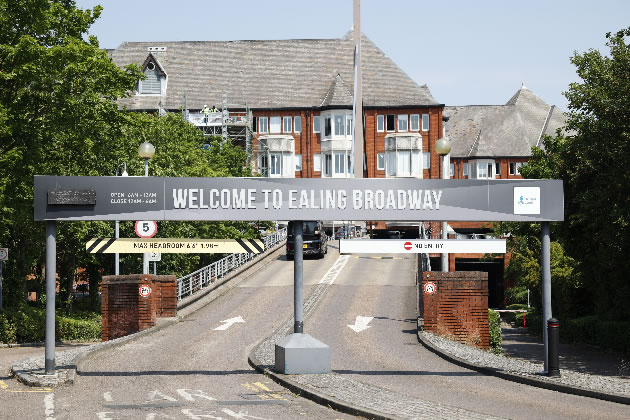Just 12 Respond to Ealing Council's 'Comprehensive Consultation'
Campaigner disputes that outcome shows support for Windsor Road proposals

Thousands of cars from the shopping centre arrive and leave each week
July 20, 2023
Residents who live on a road plagued by speeding and traffic jams have questioned Ealing Council’s claims that a “comprehensive consultation” took place to find a solution, after an FOI revealed just 12 people gave their opinions. Windsor Road in Ealing Broadway saw 2,818 cars break the speed limit in just one week with exhausted residents petitioning local authorities to find a way to tackle the issue.
The solution the council is looking to implement – changing the position of a ‘give way’ at a junction on the road in order to force traffic to slow down – has not gone down well with everyone leading to questions over who was consulted.
In a previous statement to Local Democracy Reporting Service (LDRS), the council said a “comprehensive consultation” was carried out with residents before the plan was finalised. However, a Freedom of Information (FOI) request submitted by one resident has revealed that only 12 out of 1,053 addresses responded to the consultation, which was conducted by mail.
Of the people who did reply, the council said that they “largely” agreed with the measures. While this appears to be vindication for campaigner Mark Uddin, a Windsor Road resident and the man behind the @20means20 Twitter account, who sees it as an illegitimate and ineffective measure, the council interpret the numbers as evidence that residents in the area are happy with the current state of affairs and are therefore not motivated to take part in the consultation.
An Ealing Council spokesperson said, “The consultation process was comprehensive given that all 1,053 addresses received a hand-delivered leaflet describing all of the proposed measures and how to participate in the four-week consultation period. This was preceded by on-site meetings involving officers, ward councillors and a local resident who has campaigned for measures to be introduced to reduce vehicle speeds.
“The low number of responses were largely in favour of the proposals. It is not unusual to have a low response rate, we find that residents who feel strongly about a proposal reply in higher numbers but if people are generally content, then there is less response.”